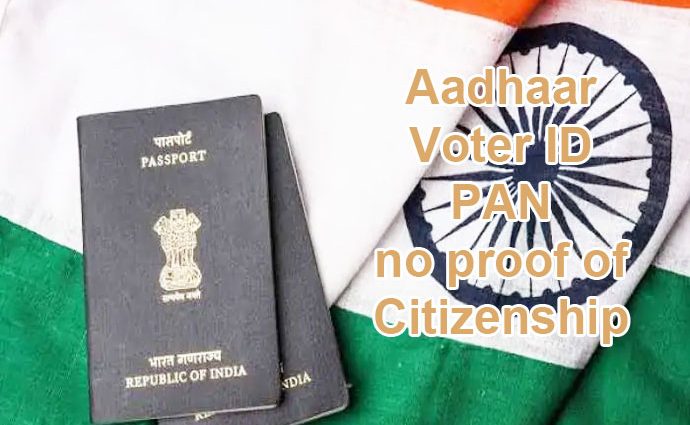Contrary to a layman’s belief that a person residing in India, upon relinquishing her/his original Citizenship would automatically grant him/her Indian Citizenship, the Patna High court has cleared the air and said that is not the case.
Dealing with the case of Kiran Gupta in Kiran Gupta v. State Election Commission, the Patna High Court has ruled that under the existing Constitutional and legal regime, merely relinquishing foreign citizenship, even if coupled with long residency in India, would not automatically confer on a person Indian Citizenship
The Division Bench of Chief Justice Sanjay Karol and Justice S Kumar reiterated that holding of documents such as Voter ID, PAN Card and Aadhaar also do not constitute proof of citizenship.
“… it is not that anyone or everyone can, as a matter of right, claim Citizenship of India. Power and discretion of conferring citizenship vests with the Central Government which, of course, has to be exercised as per settled principles of Law.”
The Court was dealing with a plea by Kiran Gupta who was born a Nepali citizen, whose election as the Mukhiya of a Gram Panchayat was challenged on the ground that she was not an Indian citizen.
Kiran had married an Indian citizen in 2003 and formally relinquished her Nepali citizenship in 2016. But she had never formally made an application for citizenship under the Indian Citizenship Act, 1955.
Clearing the air, the Court has stated that under the Indian Citizenship Act, a foreigner who marries an Indian citizen has the option of applying for it, provided that s/he has been residing in India for at least the preceding seven years.
If such an application is made, the Central Government has the discretion to grant Indian Citizenship in accordance with the law. The Court added that unless such an application is decided “the mere filing of an application does not confer any right of Citizenship” either.
Given that Kiran had never made the application to become an Indian citizen, the High Court affirmed the State Election Commission’s decision to set aside her election to the Panchayat on the ground that she was disqualified for not being an Indian citizen.
The Court rejected submissions made on her behalf that her Indian citizenship could be guaged from her Voter ID, PAN card, Aadhaar and other documents.
As an aside, the Court realizing Kiran’s situation empathized with her who had surrendered her Nepali citizenship and not obtained Indian citizenship.
A practical problem that arises in such cases will be to meet all the requirements when applying for citizenship of India under the Indian Citizenship Act of 1955. That application requires that a foreigner submit a copy of the foreign passport with the application. Kiran, having already renounced her Nepali Citizenship in 2016, may not have a valid Nepali passport which will jeopardize her application.
The big take away from the story is – to become Indian citizen before you renounce your foreign citizenship.
Similar Posts by The Author:
- Problems of Arvind Kejriwal lie in the Charge-sheet against Manish Sisodia
- ABC Ram Temple coverage: ABC Ombudsman’s “No Bias” report – a slap on the face of Australian Hindus
- Defamation dogfights are dogging the leader: Should John Pesutto step down to come back later?
- ASIO boss Mike Burgess MUST name the rogue politician, academics
- Who can stop John Pesutto from becoming Premier of Victoria?

